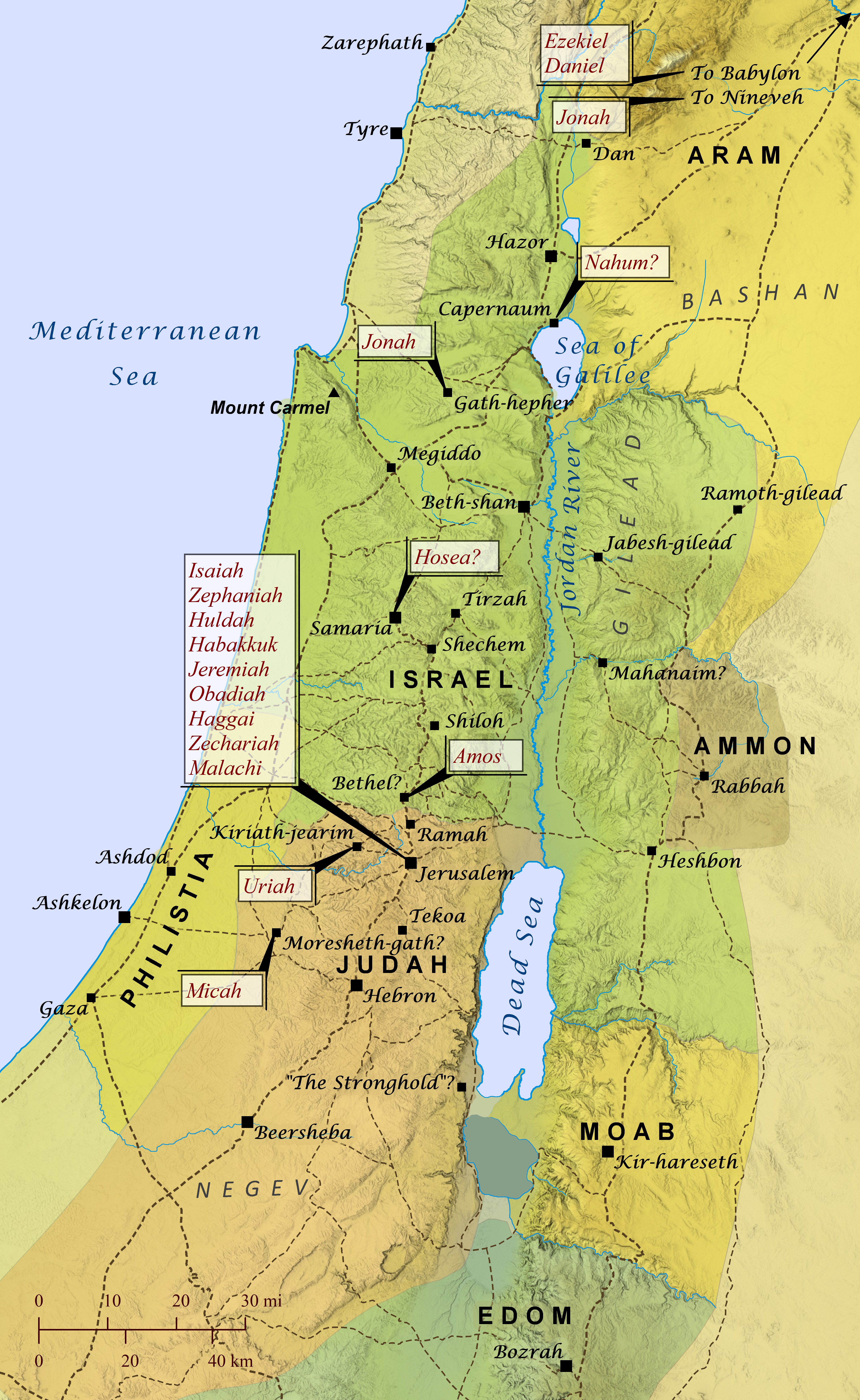Readers’ Version
Literal Version
2 “I have loved you all,” says Yahweh, but you say, “How have you shown your love for us?”
“Wasn’t Esaw Yacob’s brother?” declares Yahweh. “Yet I’ve loved Yacob[ref] 3 and rejected Esaw. I’ve turned the hills where Esaw lived into a wasteland and given his inheritance to the wild jackals.”
4 If Esaw’s descendants in Edom say, “We’ve been crushed, but we’ll return and rebuild what was destroyed,” then army-commander Yahweh will say, “They might build, but I will tear down. Others will call them ‘The country of wickedness’ and ‘The people who Yahweh is forever angry with.’
5 Your own eyes will see it, and you’ll say, ‘Yahweh is great even outside Yisrael’s borders.’ ”
3 And_DOM ˊĒsāv I_hated and_turned DOM mountains_of_his a_waste and_DOM inheritance_of_his to_jackals_of the_wilderness.
4 If/because ʼEdōm it_will_say we_have_been_shattered and_return and_rebuild the_ruins thus YHWH he_says hosts they they_will_build and_I I_will_tear_down and_called to/for_them a_territory_of wickedness and_the_people which he_was_indignant YHWH until perpetuity.
5 And_eyes_of_your(pl)_own they_will_see and_you(pl) you(pl)_will_say YHWH he_is_great from_under to_borders_of Yisrāʼēl/(Israel).
6 “A son honours his father, and a servant honours his master, so if I’m a father, where is my honour? If I am a master, where is my respect?” says army-commander Yahweh to all you priests who despise my name.
“But you say, ‘How have we despised your name?’ 7 By offering polluted food on my altar. But you say, ‘How have we polluted you?’ By saying that Yahweh’s table can just be disrespected. 8 Don’t you think it’s wrong when you sacrifice blind animals? Isn’t it evil when you offer lame or sick animals? Try presenting them to your governor! Will he welcome you or would he be offended?” says army-commander Yahweh.[ref]
9 So now bring you requests to God and hope to be showered by his grace. Ha, army-commander Yahweh asks how he could treat you all favourably when you’re bringing second-class offerings?
10 “Yeah, if only there was one person among you who would shut the temple gates so that you all couldn’t just continue to light worthless fires on my altar. I get no pleasure from you all,” says army-commander Yahweh, “and I won’t accept any offering that you all bring me. 11 People in other countries from the east all the way to the west will honour me, and incense and genuine sacrifices will be offered to me, because my reputation in those countries will be praised,” says army-commander Yahweh. 12 “But you all are dishonouring my name when you say that the master’s table is polluted, and that its fruit, its food, can be treated with contempt. 13 You all also say, ‘How tiresome this is,’ and you snort at it,” says army-commander Yahweh. “You all bring animals for your offering that were killed by a wild animal or is lame or sick. Should I accept those from you?” says Yahweh. 14 “May the cheats be cursed who have male animals in their flocks and vow to give them, but instead sacrifices a second-class animal to the master! Yes, I’m a powerful king,” says army-commander Yahweh, “and my name will be carefully respected among the nations.”
7 you(pl)_are_bringing_near on altar_of_my food defiled and_ask in/on/at/with_how defiled_you in/on/at/with_saying_you(pl) the_table_of YHWH is_despicable it.
8 And_because/when offer a_blind_animal for_sacrifice is_it_not evil and_because/when you(pl)_bring_near a_lame_animal and_sick is_it_not evil present_it please to_governor_of_your pleased_with_you[fn][fn][fn] or would_he_accept faces_of_you YHWH he_says hosts.
9 And_now entreat please the_face_of god and_gracious_us[fn] from_hands_of_your(pl) it_was this will_he_accept any_of_you(pl) face YHWH he_says hosts.
10 Who also in/on/at/with_you(pl) and_shut the_doors and_not you(pl)_will_set_light_to altar_of_my in_vain there_is_not to_me pleasure in/on/at/with_you(pl) YHWH he_says hosts and_offering not I_will_accept from_hands_of_your(pl).
11 If/because from_rising_of the_sun and_unto setting_of_its is_great name_of_my in/on/at/with_nations and_on/over_all place incense is_being_brought_near to_name_of_my and_offering a_pure if/because is_great name_of_my in/on/at/with_nations YHWH he_says hosts.
12 And_you(pl) are_profaning DOM_it in/on/at/with_say_you(pl) the_table_of my_master is_defiled it and_fruit_of_its is_despicable food_of_its.
13 And_say there what_weariness and_sniff_at DOM_it YHWH he_says hosts and_bring a_stolen_animal and_DOM the_lame and_DOM the_sick and_bring DOM the_offering accept DOM_that from_hand_of_your(pl) YHWH he_says.
14 and_cursed one_who_deals_deceptively and_has in/on/at/with_flock_of_his a_male and_vows and_sacrifices a_blemished_animal to_master_of if/because am_a_king great I YHWH he_says hosts and_name_of_my is_to_be_feared in/on/at/with_nations.

